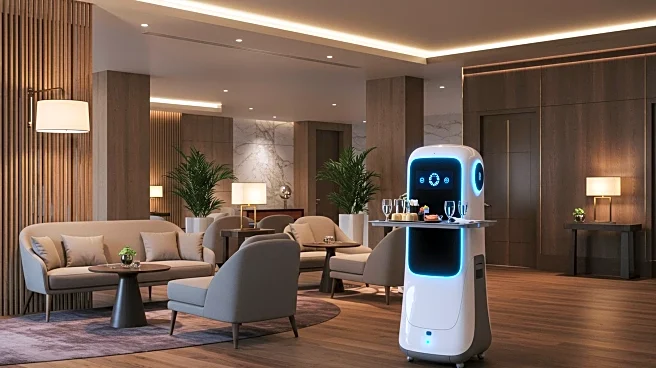What is the story about?
What's Happening?
The hospitality industry is experiencing significant shifts in product development strategies, influenced by technological advancements and changing consumer expectations. Historically, globalization and free trade encouraged optimizing production costs by locating each stage of a product's value chain where competitive advantage dictated. Today, the industry is leveraging 'big data' and the Internet of Things (IoT) to enhance service delivery and operational efficiency. For instance, IoT can monitor hotel room temperatures to save energy, while 'big data' helps in forecasting demand and optimizing pricing strategies. Additionally, the industry is witnessing a convergence of products, with innovations such as subscription-based services for hotel amenities and outsourcing traditional hotel functions like housekeeping and laundry. These changes reflect a broader trend of adapting to new technologies and consumer preferences, aiming to offer more personalized and efficient services.
Why It's Important?
These developments are crucial as they represent a shift towards more sustainable and efficient business models in the hospitality sector. By adopting new technologies, hotels can reduce operational costs and improve guest experiences, which is vital in a competitive market. The use of 'big data' and IoT allows for better resource management and personalized services, enhancing customer satisfaction and loyalty. Moreover, the convergence of products and services can lead to new revenue streams and business opportunities, helping companies to differentiate themselves in a crowded marketplace. As consumer expectations continue to evolve, the ability to adapt and innovate will be key to maintaining competitiveness and achieving long-term success in the hospitality industry.
What's Next?
The hospitality industry is likely to continue exploring new technologies and business models to enhance service delivery and operational efficiency. Companies may invest more in data analytics and IoT solutions to further personalize guest experiences and optimize resource management. Additionally, the trend towards outsourcing and subscription-based services may expand, offering hotels new ways to manage costs and improve service quality. As these innovations become more widespread, traditional hospitality models may evolve, leading to a more dynamic and responsive industry that can better meet the needs of modern travelers.
Beyond the Headlines
The shift towards technology-driven solutions in hospitality raises important ethical and privacy considerations. As hotels collect more data on guests to personalize services, they must ensure robust data protection measures are in place to safeguard privacy. Additionally, the move towards outsourcing may impact employment in the sector, as traditional roles are replaced by third-party providers. These changes could lead to shifts in labor dynamics and require new regulatory frameworks to protect workers' rights and ensure fair practices.















